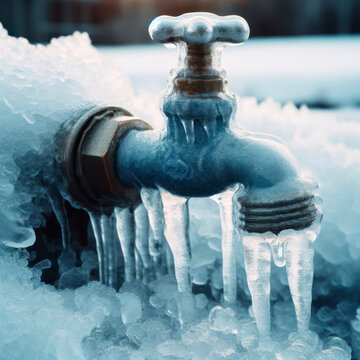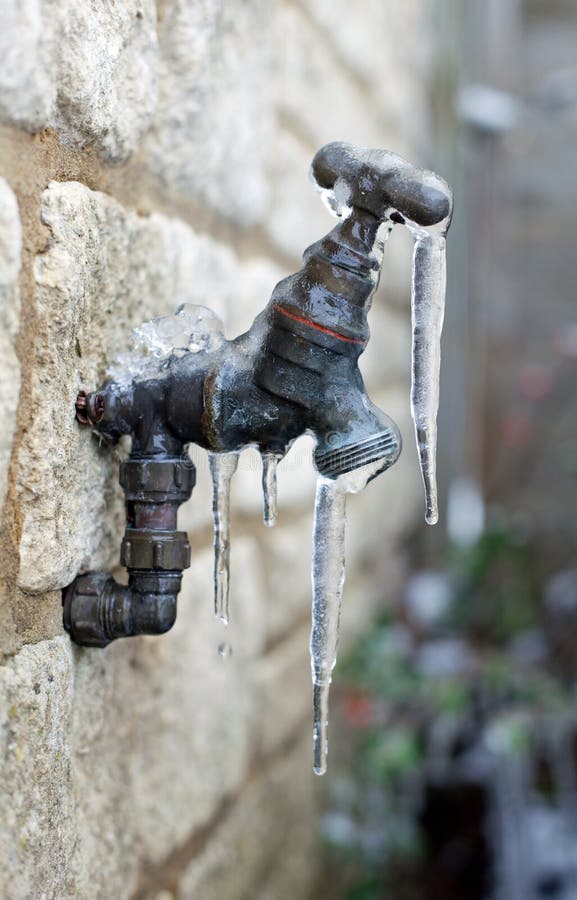Essential Tips for Preventing Frozen Plumbing in Winter Conditions
Essential Tips for Preventing Frozen Plumbing in Winter Conditions
Blog Article
We have stumbled upon the article involving How to prepare your home plumbing for winter weather down the page on the web and felt it made perfect sense to discuss it with you on my blog.

Winter can wreak havoc on your pipes, particularly by freezing pipelines. Below's how to stop it from happening and what to do if it does.
Introduction
As temperature levels drop, the risk of frozen pipes rises, potentially resulting in expensive repairs and water damage. Comprehending exactly how to avoid icy pipelines is critical for home owners in cold climates.
Understanding Frozen Pipes
What causes pipes to ice up?
Pipes freeze when exposed to temperature levels listed below 32 ° F (0 ° C) for extended durations. As water inside the pipes freezes, it increases, putting pressure on the pipe walls and potentially creating them to break.
Threats and damages
Icy pipes can lead to water interruptions, home damage, and pricey repair services. Ruptured pipes can flooding homes and trigger extensive structural damages.
Signs of Frozen Water Lines
Recognizing frozen pipelines early can prevent them from rupturing.
Just how to identify frozen pipes
Try to find decreased water flow from faucets, unusual odors or noises from pipelines, and visible frost on subjected pipelines.
Avoidance Tips
Shielding at risk pipelines
Cover pipelines in insulation sleeves or utilize warm tape to secure them from freezing temperature levels. Concentrate on pipelines in unheated or outside areas of the home.
Heating techniques
Keep interior spaces sufficiently heated up, especially areas with pipes. Open closet doors to permit warm air to circulate around pipelines under sinks.
Securing Outside Plumbing
Yard hose pipes and outside taps
Detach and drain pipes yard hoses prior to winter season. Install frost-proof spigots or cover exterior faucets with shielded caps.
What to Do If Your Pipes Freeze
Immediate actions to take
If you suspect frozen pipes, maintain faucets available to relieve pressure as the ice thaws. Use a hairdryer or towels soaked in hot water to thaw pipelines slowly.
Long-Term Solutions
Structural changes
Take into consideration rerouting pipelines away from exterior walls or unheated areas. Add additional insulation to attic rooms, cellars, and crawl spaces.
Upgrading insulation
Invest in top quality insulation for pipes, attics, and wall surfaces. Appropriate insulation assists keep regular temperature levels and decreases the risk of icy pipelines.
Final thought
Stopping frozen pipelines needs positive steps and fast reactions. By comprehending the causes, indicators, and preventive measures, property owners can shield their pipes throughout winter.
Helpful Tips to Prevent Frozen Pipes this Winter
UNDERSTANDING THE BASICS: WHY PIPES FREEZE AND WHY IT’S A PROBLEM
Water freezing inside pipes is common during the winter months, but understanding why pipes freeze, and the potential problems it can cause is crucial in preventing such incidents. This section will delve into the basics of why pipes freeze and the associated problems that may arise.
THE SCIENCE BEHIND FROZEN PIPES
When water reaches freezing temperatures, it undergoes a physical transformation and solidifies into ice. This expansion of water as it freezes is the primary reason pipes can burst. As the water inside the pipe freezes, it expands, creating immense pressure on the walls. If the pressure becomes too great, the pipe can crack or rupture, leading to leaks and water damage.
FACTORS THAT CONTRIBUTE TO PIPE FREEZING
Low Temperatures: Extremely cold weather, especially below freezing, increases the risk of pipes freezing. Uninsulated or Poorly Insulated Pipes: Pipes located in unheated areas, such as basements, crawl spaces, or attics, are more prone to freezing. Insufficient insulation or lack of insulation altogether exacerbates the problem. Exterior Wall Exposure: Pipes running along exterior walls are susceptible to freezing as they encounter colder temperatures outside. Lack of Heating or Temperature Regulation: Inadequate heating or inconsistent temperature control in your home can contribute to frozen pipes. PROBLEMS CAUSED BY FROZEN PIPES
- Pipe Bursting: As mentioned earlier, the expansion of water as it freezes can cause pipes to burst, resulting in significant water damage.
- Water Damage: When pipes burst, it can lead to flooding and water damage to your property, including walls, ceilings, flooring, and personal belongings.
- Structural Damage: Prolonged exposure to water from burst pipes can compromise the structural integrity of your home, leading to costly repairs.
- Mold and Mildew Growth: Excess moisture from water damage can create a favorable environment for mold and mildew growth, posing health risks to occupants.
- Disrupted Water Supply: Frozen pipes can also result in a complete or partial loss of water supply until the issue is resolved.
WHY CERTAIN PIPES ARE MORE PRONE TO FREEZING
- Location: Pipes located in unheated or poorly insulated areas, such as basements, crawl spaces, attics, or exterior walls, are at higher risk of freezing.
- Exterior Pipes: Outdoor pipes, such as those used for irrigation or exposed plumbing, are particularly vulnerable to freezing as they are directly exposed to the elements.
- Supply Lines: Pipes that carry water from the main water supply into your home, including the main water line, are critical to protect as freezing in these lines can affect your entire plumbing system.
- Underground Pipes: Pipes buried underground, such as those connected to sprinkler systems or outdoor faucets, can be susceptible to freezing if not properly insulated.
https://busybusy.com/blog/helpful-tips-to-prevent-frozen-pipes-this-winter/

Do you appreciate reading up on Helpful Tips to Prevent Frozen Pipes this Winter? Put feedback below. We will be delighted to see your responses about this review. We are looking forward that you visit us again in the future. Sharing is caring. You just don't know, you could be helping someone out. I appreciate your readership.
Call Today Report this page